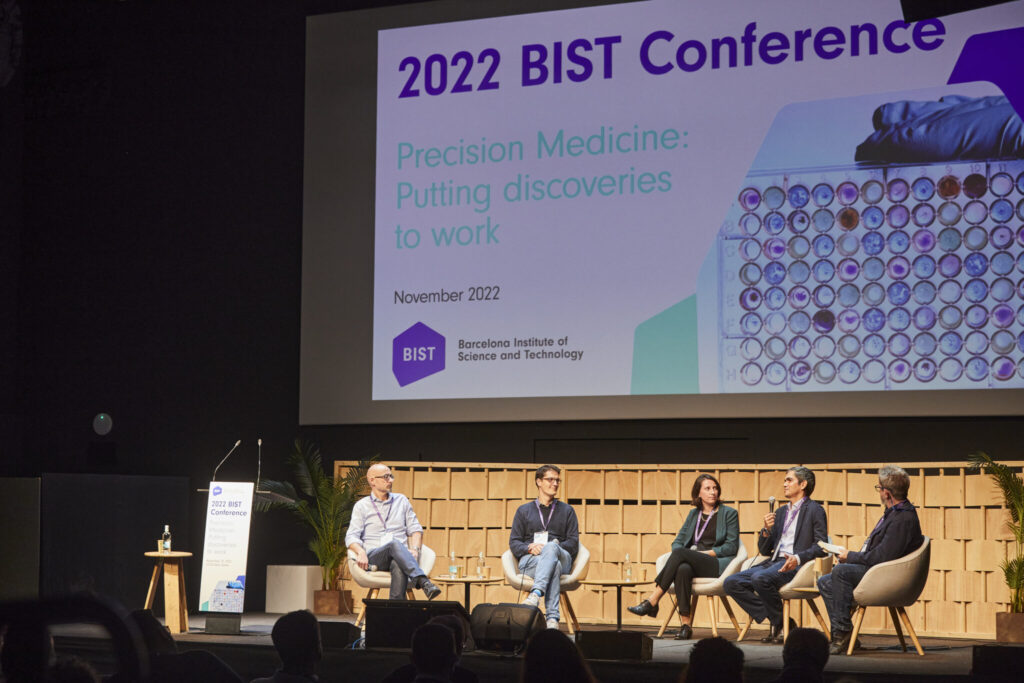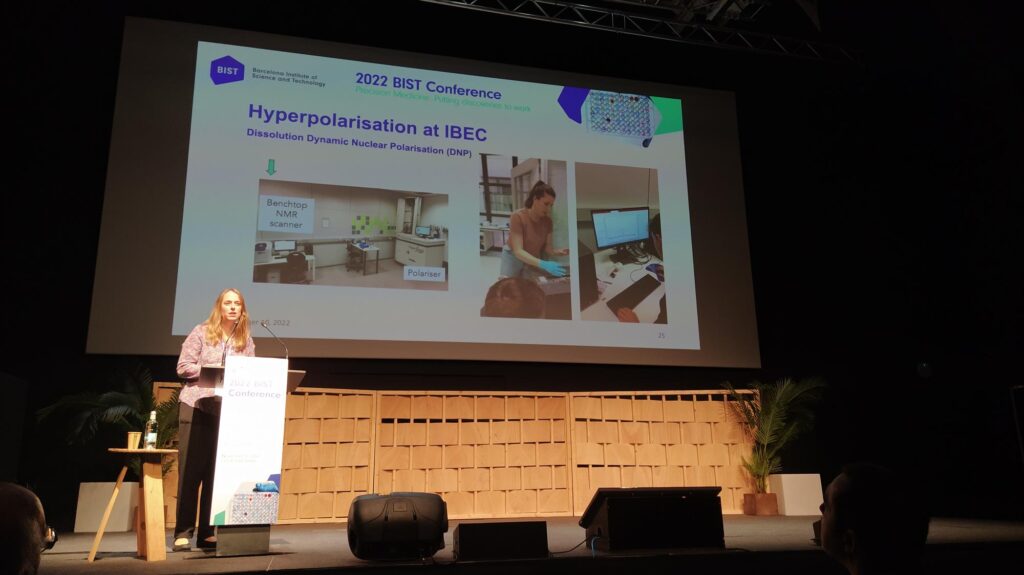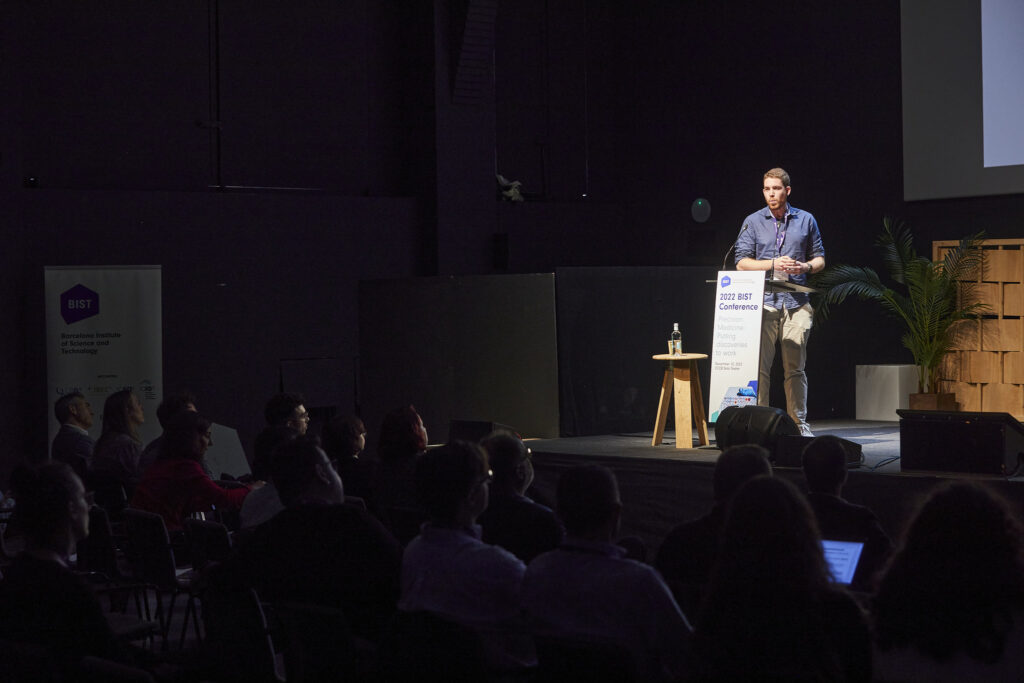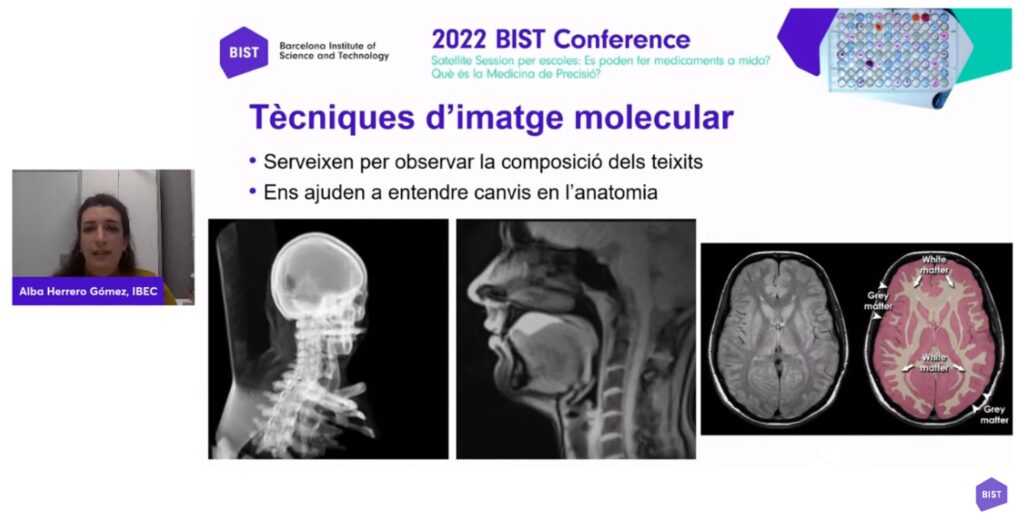From 8th to 11st of November, BLOC project was present at the 2022 Barcelona Institute of Science and Technology (BIST) Conference on Precision Medicine. Researchers from the “Molecular Imaging for Precision Medicine” laboratory at IBEC presented scientific advances and participated in an outreach event with high school students.

The Barcelona Institute of Science and Technology (BIST) is a leading institution of multidisciplinary research encompassing seven Catalan research centres of excellence, including IBEC, coordinator of BLOC project. In the frame of the 6th edition of the BIST Conference, during 4 days more than 250 people from the BIST Community and its stakeholders shared their research advancements in precision medicine from multiple perspectives and approaches. Precision medicine involves patient-centred and comprehensive approaches to face healthcare, incorporating individual’s genetics, environment, and lifestyle viewpoints into targeted disease prevention and treatment plans.

In this scenario, Irene Marco-Rius presented the work being done in her laboratory at IBEC, that aim to develop molecular imaging tools to identify abnormalities of cell metabolism in human disease and predict treatment efficacy. She centred her talk on the subject of BLOC project and on use of NMR methods to identify biomarkers to diagnose, stage and evaluate treatment response in several diseases, in real time using so-called Hyperpolarization MR techniques.

On his side, Marc Azagra presented a flash talk entitled “High-throughput analysis in a microfluidic multiwell plate by non-invasive dynamic nuclear polarization-magnetic resonance”. He focused on the use of this high sensitivity technique, that is able to enhance the intrinsically low sensitivity of NMR up to 10,000 times allowing its extrapolation for real-time in-situ metabolomic analysis and its potential use as a preclinical tool.

Finally, Alba Herrero participated in an outreach activity in the framework of the 2022 “Setmana de la Ciència”, tailored to high school students. In total, about 2000 students could get in contact with precision medicine research projects explained in an easy way by PhD students. Alba gave an online talk and explained what “molecular imaging” is and how it can be applied to the field of precision medicine.